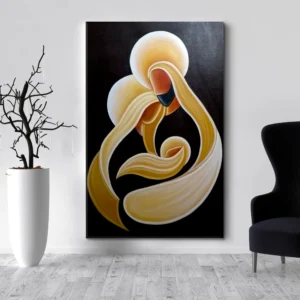When most people think of slots, they think of chance. You press a button, watch the reels spin, and hope for the best. But anyone who has spent time around online or land-based casinos knows that not all slot machines are created equal. Some games seem to pay out more frequently, while others feel like a money pit that rarely rewards players.
The truth is, there’s a science behind why some slots offer better odds than others. Factors like Return to Player (RTP), volatility, and game design all influence your chances of walking away with a win. Understanding these mechanics doesn’t guarantee success—slots are still games of luck—but it can help you make smarter decisions about which games you choose to play.
The Role of RTP in Slot Odds
Return to Player, or RTP, is the most important figure to look at when assessing a slot’s odds. RTP is expressed as a percentage that represents the average amount of money a slot pays back to players over time. For example, a slot with a 96% RTP will theoretically return £96 for every £100 wagered, though individual sessions can swing much higher or lower.
Slots with higher RTPs generally offer better odds of long-term returns. Classic games often sit in the 94–96% range, while some modern online slots reach as high as 98%. It may not sound like a big difference, but over hundreds or thousands of spins, that small percentage gap can add up.
Casinos still keep their edge—the house always wins eventually—but picking games with higher RTPs increases your chances of having a more rewarding experience.
Volatility and How It Shapes Gameplay
RTP isn’t the only factor in slot odds. Volatility, also known as variance, plays a major role in how a game behaves. Low-volatility slots pay out small amounts frequently, while high-volatility slots pay less often but with larger potential rewards.
The difference in experience between these two types of games can be dramatic. In a low-volatility slot, you might feel like you’re winning consistently, though the wins are modest. In a high-volatility slot, you might spin 20 times with nothing, then suddenly land a massive payout.
Choosing the right volatility depends on your playing style and risk tolerance. If you’re on a budget and want longer sessions, low volatility is often best. If you’re chasing big jackpots and don’t mind dry spells, high volatility could be more exciting. It’s no coincidence that many new betting sites highlight volatility alongside RTP when promoting their latest slot offerings, helping players match their preferences with the right games.
The Impact of Bonus Features
Modern slots aren’t just about spinning reels anymore. Bonus features like free spins, multipliers, and expanding wilds can drastically affect a game’s odds and payout potential. While these features make slots more engaging, they also add complexity to how the RTP is distributed.
In some cases, the majority of a slot’s RTP is tied to its bonus rounds. That means unless you trigger the feature, the base game can feel “tight.” On the flip side, when you do hit the bonus, the rewards can be substantial. Understanding whether a slot is bonus-heavy or base-game-friendly can help set realistic expectations for your session.
Game Design and Player Psychology
Slot developers know that math alone doesn’t keep players coming back. Game design—visuals, themes, sounds, and pacing—also influences perception of odds. A machine that offers frequent small wins with flashing lights and celebratory sounds can make players feel luckier than they actually are.
This is part of why two slots with identical RTPs and volatility can feel so different in practice. One may seem generous because of its design, while the other feels stingy. In reality, both may be paying out at the same rate. Recognizing how psychology blends with math is key to making informed choices.
Online vs. Land-Based Slots
Another reason some slots offer better odds comes down to location. Online slots generally have higher RTPs than land-based machines. This is because online casinos have lower overhead costs and can afford to offer players more favorable returns. It’s not uncommon to find online slots with RTPs above 96%, while physical machines on a casino floor often sit closer to 90%.
If your main goal is maximizing odds, online platforms tend to be a better choice. However, some players still prefer the atmosphere and social energy of a brick-and-mortar casino, even if it means accepting slightly worse returns.
Progressive Jackpots and Risk vs. Reward
Progressive jackpot slots are a special case. These games pool a portion of every wager into a shared jackpot that can grow to life-changing amounts. The trade-off is that the base RTP of progressive slots is often lower than regular games, and much of the RTP is locked into the rare event of hitting the jackpot.
For players chasing the dream of a massive payout, these games are irresistible. But from an odds perspective, they’re less favorable for regular wins compared to non-progressive slots. Balancing the thrill of a potential jackpot against the reality of lower returns is part of the decision-making process.
Tips for Choosing Slots With Better Odds
If you’re looking to maximize your chances, a few simple practices can help. Always check the RTP before playing, aim for games in the 96% or higher range, and consider volatility in line with your budget and playing style. Don’t be swayed solely by flashy graphics or themes—dig into the game information and understand where the odds stand.
When testing new games, take advantage of demo modes or small wagers to get a feel for how they play. Pay attention to how often bonuses trigger and whether the game keeps your balance steady or drains it quickly. Over time, you’ll develop an intuition for which slots align best with your expectations.
Final Thoughts
Some slots do offer better odds than others, but the difference comes down to more than luck. RTP, volatility, bonus structures, and even platform choice all play a role in shaping your experience. By understanding these factors and making informed choices, you can enjoy slots in a way that balances entertainment with smarter play.
At the end of the day, slots should be about fun first. Better odds are a bonus, not a guarantee. But if you approach the games with knowledge and strategy, you’ll get more enjoyment from your sessions—and maybe a few more wins along the way.






